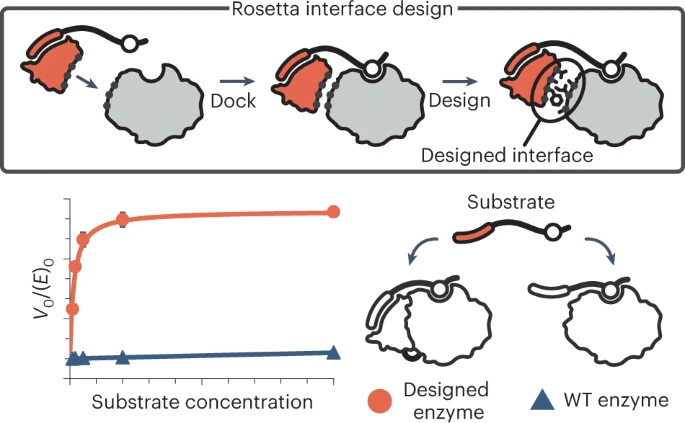EnzymoGenius™ excels in enhancing enzyme selectivity towards specific substrates, stands as a beacon of innovation in the realm of enzyme optimization. Our cutting-edge technologies and methodologies empower industries to harness the full potential of enzymatic processes with unparalleled precision.
Overview
Enhancing enzyme selectivity towards specific substrates is a pivotal aspect of contemporary enzymology research, driven by the pursuit of optimizing catalytic efficiency in biotechnological applications. Progress in this domain involves elucidating the structural determinants influencing substrate recognition and binding specificity, often through site-directed mutagenesis and molecular dynamics simulations. Rational engineering of enzymes exploits insights gained from these studies, tailoring active sites to accommodate target substrates with enhanced affinity and reduced off-target interactions. Furthermore, directed evolution strategies, harnessing natural selection principles in vitro, have proven instrumental in fine-tuning enzyme selectivity. This research, marked by a convergence of computational modeling and experimental approaches, continues to unlock new dimensions in the design and refinement of enzymes for specific substrate recognition, facilitating advancements in diverse fields, from pharmaceuticals to sustainable biofuel production.
 Fig. 1 Utilizing designed recruited structural domains to tailor enzyme specificity. (Park, R, et al.,2022)
Fig. 1 Utilizing designed recruited structural domains to tailor enzyme specificity. (Park, R, et al.,2022)
Service Process
- Substrate Analysis
Employing state-of-the-art analytical methods, we conduct a thorough examination of the substrate characteristics.
- Enzyme Screening
Through rigorous screening processes, we identify enzymes with inherent or potential selectivity toward the target substrates.
- Molecular Design
Leveraging molecular modeling, we design modifications to enhance the selectivity of the chosen enzymes.
- Experimental Validation
Our experts validate the predicted outcomes through meticulous experimental procedures, ensuring real-world applicability.
- Optimization Iterations
Iterative optimization cycles refine the enzyme-substrate interaction, achieving heightened selectivity with each iteration.
Leading Technologies
- Protein Engineering
Applying advanced protein engineering techniques, we modify enzyme structures to achieve enhanced substrate specificity.
- Directed Evolution
Through directed evolution, we drive the natural evolution of enzymes to adapt to specific substrates, ensuring tailored functionality.
- High-Throughput Screening
Utilizing high-throughput screening methodologies accelerates the identification of optimal enzyme candidates for specific substrates.
- Computational Modeling
Precision is achieved through computational modeling, guiding modifications for optimal enzyme-substrate interactions.
Service Highlights
- Tailored Solutions
Our services provide customized enzyme solutions, ensuring compatibility with diverse substrate requirements.
- Industry Versatility
EnzymoGenius™ caters to a wide array of industries, from pharmaceuticals to biofuels, offering versatile solutions for varied applications.
- Cost-Efficiency
By enhancing selectivity, our services contribute to cost efficiency by minimizing substrate waste and optimizing production processes.
- Rapid Deployment
Leveraging advanced technologies, our services facilitate swift implementation, reducing downtime in industrial processes.
EnzymoGenius™ spearheads enzyme optimization, offering tailored solutions through substrate analysis, enzyme screening, molecular design, experimental validation, and iterative optimization. Our strengths lie in protein engineering, directed evolution, high-throughput screening, and computational modeling. With highlights including tailored solutions, industry versatility, cost-efficiency, and rapid deployment, we invite industries to unlock the full potential of enzymatic processes. Contact us to elevate your enzymatic endeavors with precision and efficiency.
Reference
- Park, R.; et al. Designer installation of a substrate recruitment domain to tailor enzyme specificity. Nature Chemical Biology. 2022, 19: 460-467.

































 Fig. 1 Utilizing designed recruited structural domains to tailor enzyme specificity. (Park, R, et al.,2022)
Fig. 1 Utilizing designed recruited structural domains to tailor enzyme specificity. (Park, R, et al.,2022)